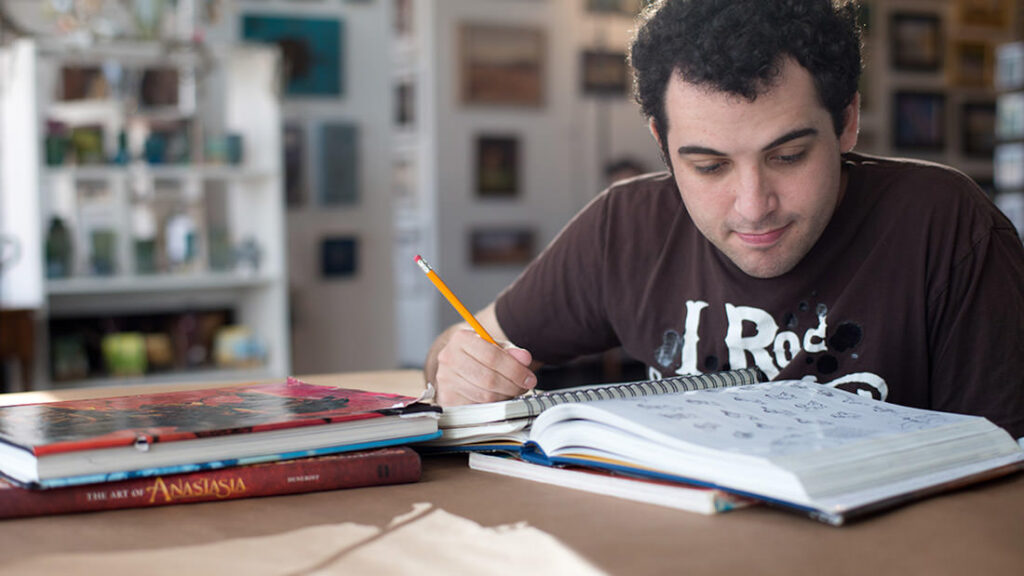It’s impossible to completely divorce my reaction to Roger
Ross Williams’ remarkable “Life, Animated” from two of the most definitive
roles in my life: father and film critic. For the former, the film emotionally
forced me to consider my relationship to my sons as it captures a father whose
life forever changes when his son’s autism puts up a wall between the two of
them. For the latter, Williams’ film is also about how we use film to interpret
and relate to the world. In the case of this documentary, it’s the stunning
story of a boy who found a path to communication with a confusing world through
Disney animation, but show me a film critic and I’ll show you someone who has
shaped their view of the world through cinema. Whatever personal response to “Life,
Animated” that may differentiate my experience from yours, it’s a film to which
I believe everyone can relate, an emotional powerhouse about a young man who
finds reality confusing enough that he needs fiction to understand it.
When Owen Suskind was three years old, he just stopped
talking. We see a playful video of a young Owen, pretending to be Peter Pan in
his backyard with his dad. It’s hard to believe that autism can have such a
screeching halt impact as to take that boy and essentially make him mute, but
that’s what happened to Owen. It wasn’t until two key events—one while watching
“The Little Mermaid” and one after his brother’s birthday party—that his
parents realized that there was a way not only to communicate with Owen but to
give him the tools to deal with the rest of the world. He learned about loss watching
“Bambi”; he learned about identity watching “Dumbo”; he learned about
recovering from grief watching “The Lion King.” The list goes on and on. Disney
characters from Simba to Ariel are often characters who have to overcome worlds
that scare them, and Owen learned how to cope and deal with society by
employing some of the same tools as those iconic cartoons.
“Life, Animated” is essentially a chronological retelling of
how Owen went from a relatively mute child to a young man trying to live
on his own, but it’s perfectly edited, carefully weaving together interviews,
Disney clips, and in a brilliant decision, hand-drawn animation reenacting key
moments of Owen’s childhood. There’s a brief glimpse of “Monsters, Inc.” on
Owen’s shelf, but I found it interesting that Owen seems to use older Disney
films for his arsenal more than CGI/Pixar era (or, that could be a decision made
by Williams). Either way, the choice to incorporate animation into the
documentary is a very effective one, and it’s important to note that “Life,
Animated” is not just a moving story but a very well-made film as well.
However, that moving aspect of “Life, Animated” is what I
suspect will make it one of the more well-liked films of Sundance 2016. The
fact is that we all use different tools to deal with the world around us. And a
lot of us learned about loss, love and triumph watching Disney animation. Owen Suskind
just kept using those tools longer than most of us were self-aware that we were
doing the same. His story is heartwarming, moving and illuminating about how
not just people with autism but all of us process cinema and society. At one
point, Owen’s father turns to him and says, “You’re the greatest.” It’s hard
not to nod your head in agreement.












